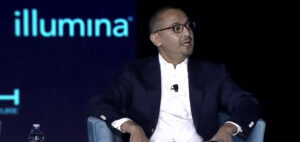Former Secretary of Labor, Robert Reich, has highlighted the transformative impact of artificial intelligence (AI) on the employer-employee relationship, predicting a shift that could lead to the need for a universal basic income. Reich emphasized that AI will revolutionize the workforce, with individuals increasingly working for AI-driven intermediaries and platforms, often earning fluctuating spot auction rates. While this AI-driven approach may boost efficiency, it also introduces significant instability into workers’ lives, making long-term financial planning challenging.
Reich argued that AI’s efficiency gains will put pressure on the adoption of a universal basic income to stimulate economic activity. As AI and platforms replace traditional jobs, a basic income could provide people with the financial means to purchase the goods and services generated by the evolving economy. Without this income support, an economy characterized by AI and reduced human labor participation could face stagnation due to reduced consumer spending.
Additionally, Reich challenged the notion that slowing economic growth is a solution to environmental concerns, stating that growth is essential to achieving environmental goals. He noted that wealthier nations are better positioned to invest in environmentally responsible technologies, such as renewable energy and climate adaptation measures. Conversely, poorer countries struggle to make such investments, exacerbating the environmental challenges they face.
In summary, Robert Reich’s insights underscore the profound changes AI is poised to bring to the workforce and the potential need for policy responses like universal basic income to address the economic and social consequences of these changes. Furthermore, he emphasizes the connection between economic growth and environmental responsibility, emphasizing that both can coexist and even reinforce each other when managed thoughtfully.
Read More: Click Here


